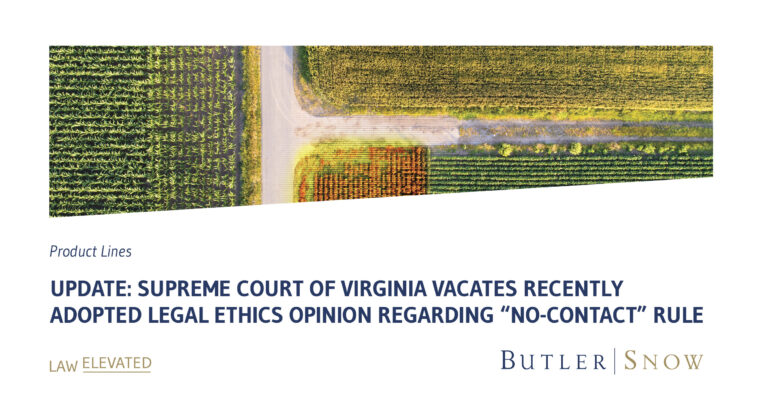Earlier this year, we covered the Supreme Court of Virginia’s adoption of Legal Ethics Opinion (“LEO”) 1890 concerning Rule 4.2 of the Virginia Rules of Professional Conduct. Rule 4.2, the so-called “no-contact rule,” prohibits an attorney from “communicat[ing] about the subject of [a] representation with a person the lawyer knows to be represented by another lawyer in the matter . . . .” LEO 1890 generally reaffirmed Virginia’s narrow interpretation of Rule 4.2, including that it does not apply to former employees of a represented organization, and only restricts ex parte communications with a current employee if the employee “is in the ‘control group’ or is the ‘alter ego’ of the represented organization.”
Less than four months later, as the world was retreating into quarantine, the Supreme Court “vacated and set aside” its earlier order adopting LEO 1890. No reason or explanation beyond “for reasons appearing to the Court” was given.
Without any official elaboration from the Court, it is impossible to know what prompted it to vacate the LEO it had only so recently just adopted. Virginia Lawyers Weekly reported at the time that two attorneys had previously voiced opposition to the Virginia State Bar’s approval of the LEO, particularly insofar as it purported to “allow[] attorneys to interview employees of a litigation target without notice to the employer.”
It is possible that, by vacating LEO 1890, the Supreme Court of Virginia is signaling a desire to distance itself from the so-called control group/alter ego view of Rule 4.2’s scope. Practitioners should beware, however, that the control group test remains enshrined in Virginia’s Comment 7 to the Rule. Accordingly, represented organizations should continue to anticipate that adverse lawyers may attempt to communicate directly with their non-control group employees regarding ongoing or potential litigation.
